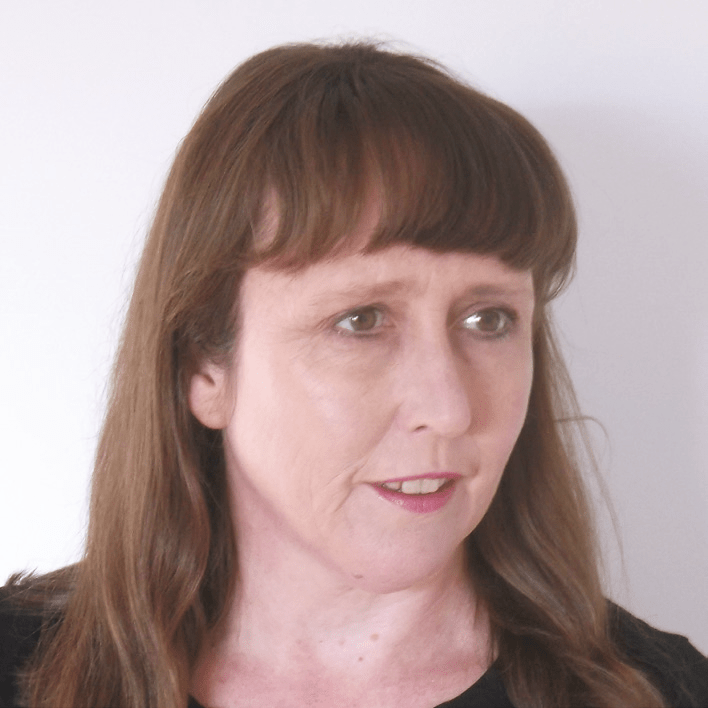Data’s Not Always The Answer – Thanks To Metrics, There’s Now No Such Thing As A ‘Tricky Class’

Only an unwise owl or a silly snake would claim that data is the answer to every question on education, argues Sue Cowley… In the last few years, data has become the Holy Grail of educational improvement. Measure the child on entry; measure the child on exit – and then figure out how much ‘value’ […]

- by Sue Cowley

Only an unwise owl or a silly snake would claim that data is the answer to every question on education, argues Sue Cowley…
In the last few years, data has become the Holy Grail of educational improvement. Measure the child on entry; measure the child on exit – and then figure out how much ‘value’ the school has added to him or her along the way.
But these things are hardly surprising, given the huge pressure on schools and teachers to ‘prove’ how much ‘value’ they have added. If you put such a massive emphasis on the SATs mark children achieve in the three core subjects, what on earth do you expect schools to focus on most?
Value must be added
You know how sometimes in schools you get a ‘tricky class’ – a group of children who travel through the school, leaving mayhem in their wake? Teachers groan at the thought that this class will belong to them come September. We whisper in the staffroom about how there must have been ‘something in the water’ the year these children were born.
But in these days of data, there is no such thing as a tricky class, or a year group with a more challenging intake than the others. It is not allowed. All children must make expected rates of progress. Value must be added, and if you can’t do it in the old-fashioned way, you’ll just have narrow the curriculum instead. We would be wise, perhaps, to remember what happens in Julia Donaldson’s book, The Gruffalo. Telling a mouse that the Gruffalo doesn’t exist is no guarantee that you won’t come across one as you stroll through the woods.
That would be a bit like telling teachers there is no such thing as a tricky class, and that data is the answer to every educational question. And only an unwise owl, a foolish fox or a silly snake would say something as daft as that…
Sue Cowley’s book about her family’s adventures in learning while travelling, Road School, will be published later this year
We were not paid according to the results we achieved. Effective education did not pit one school against another in a competition to win promotion to education’s own Premier League.
Gaming the system
Campbell’s Law states that, “The more any quantitative social indicator is used for social decision-making, the more subject it will be to corruption pressures and the more apt it will be to distort and corrupt the social process it is intended to monitor.” [From Donald T. Campbell’s 1976 paper, ‘Assessing the Impact of Social Change‘]
Or, to put it simply – if you try to measure something as socially complex as teaching and learning, it will distort the results and some people may try to game the system.
A recent Ofqual report noted a shocking 120% rise in the number of penalties issued to school staff relating to GCSE and A-Level malpractice. Sir Michael Wilshaw has previously expressed concerns about a narrowing of the curriculum in schools.
But these things are hardly surprising, given the huge pressure on schools and teachers to ‘prove’ how much ‘value’ they have added. If you put such a massive emphasis on the SATs mark children achieve in the three core subjects, what on earth do you expect schools to focus on most?
Value must be added
You know how sometimes in schools you get a ‘tricky class’ – a group of children who travel through the school, leaving mayhem in their wake? Teachers groan at the thought that this class will belong to them come September. We whisper in the staffroom about how there must have been ‘something in the water’ the year these children were born.
But in these days of data, there is no such thing as a tricky class, or a year group with a more challenging intake than the others. It is not allowed. All children must make expected rates of progress. Value must be added, and if you can’t do it in the old-fashioned way, you’ll just have narrow the curriculum instead. We would be wise, perhaps, to remember what happens in Julia Donaldson’s book, The Gruffalo. Telling a mouse that the Gruffalo doesn’t exist is no guarantee that you won’t come across one as you stroll through the woods.
That would be a bit like telling teachers there is no such thing as a tricky class, and that data is the answer to every educational question. And only an unwise owl, a foolish fox or a silly snake would say something as daft as that…
Sue Cowley’s book about her family’s adventures in learning while travelling, Road School, will be published later this year
This is the thinking behind the baseline assessment that was introduced last year – but the policy, like the emperor, has no clothes. The idea that a 15-minute computerised test could predict a child’s SATs marks seven years before she sits the tests is beyond belief (though I promise not to say ‘I told you so’ in 2023)..
Thinking in metrics
Perhaps it’s just me, but it pains me to think about education in terms of metrics. As a parent, I don’t want my children to be reduced to points of a graph, or for their schools to think in terms of ‘adding value’. My children are perfectly valuable enough already, thank you very much.
Neither do I need to know how many levels of progress have been made – or not made, which is probably as much my fault, or my child’s, as it is their teacher’s. Rather, I want to feel that I am working in partnership with my children’s schools and teachers, that we are in this together, trying to forge a path through the jungle that is modern childhood and adolescence. When I began teaching, we marked a piece of work and kept the numbers or the letters in a mark book (mine was a particularly fetching shade of pale blue). We used these marks to see what kind of level children were achieving, and whether they had progressed over the year.
Of course, we reported back to parents on how their children were doing – but we didn’t have to show the grades to everyone else. We didn’t have to increase our workload by inputting numbers into a spreadsheet. There was not this forensic focus on progress. There was not this desperate sense that life depends on hitting a specific data point.
We were not paid according to the results we achieved. Effective education did not pit one school against another in a competition to win promotion to education’s own Premier League.
Gaming the system
Campbell’s Law states that, “The more any quantitative social indicator is used for social decision-making, the more subject it will be to corruption pressures and the more apt it will be to distort and corrupt the social process it is intended to monitor.” [From Donald T. Campbell’s 1976 paper, ‘Assessing the Impact of Social Change‘]
Or, to put it simply – if you try to measure something as socially complex as teaching and learning, it will distort the results and some people may try to game the system.
A recent Ofqual report noted a shocking 120% rise in the number of penalties issued to school staff relating to GCSE and A-Level malpractice. Sir Michael Wilshaw has previously expressed concerns about a narrowing of the curriculum in schools.
But these things are hardly surprising, given the huge pressure on schools and teachers to ‘prove’ how much ‘value’ they have added. If you put such a massive emphasis on the SATs mark children achieve in the three core subjects, what on earth do you expect schools to focus on most?
Value must be added
You know how sometimes in schools you get a ‘tricky class’ – a group of children who travel through the school, leaving mayhem in their wake? Teachers groan at the thought that this class will belong to them come September. We whisper in the staffroom about how there must have been ‘something in the water’ the year these children were born.
But in these days of data, there is no such thing as a tricky class, or a year group with a more challenging intake than the others. It is not allowed. All children must make expected rates of progress. Value must be added, and if you can’t do it in the old-fashioned way, you’ll just have narrow the curriculum instead. We would be wise, perhaps, to remember what happens in Julia Donaldson’s book, The Gruffalo. Telling a mouse that the Gruffalo doesn’t exist is no guarantee that you won’t come across one as you stroll through the woods.
That would be a bit like telling teachers there is no such thing as a tricky class, and that data is the answer to every educational question. And only an unwise owl, a foolish fox or a silly snake would say something as daft as that…
Sue Cowley’s book about her family’s adventures in learning while travelling, Road School, will be published later this year











